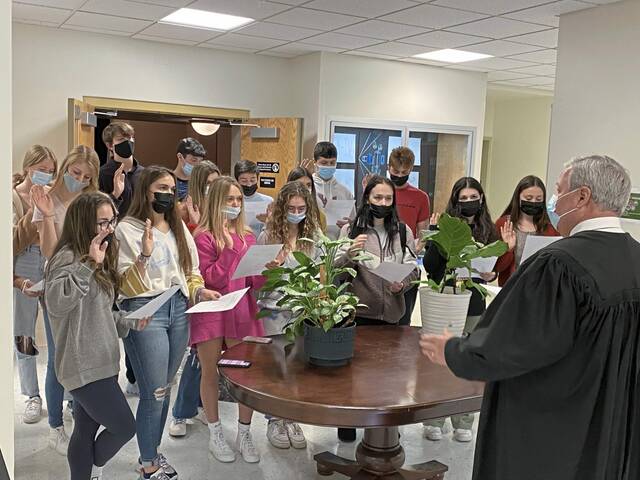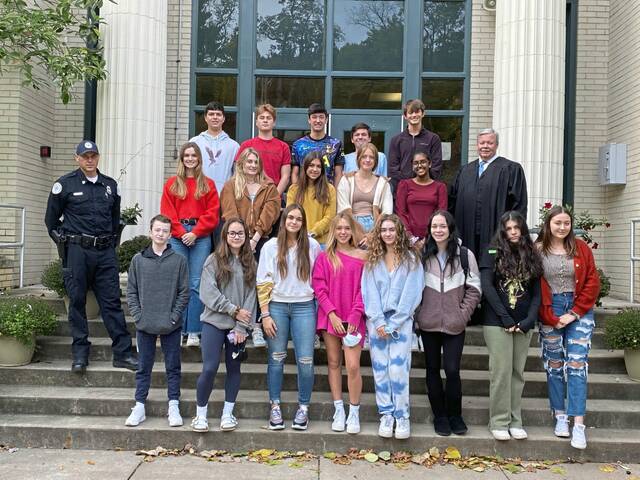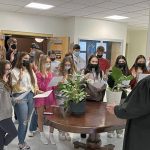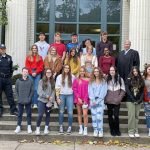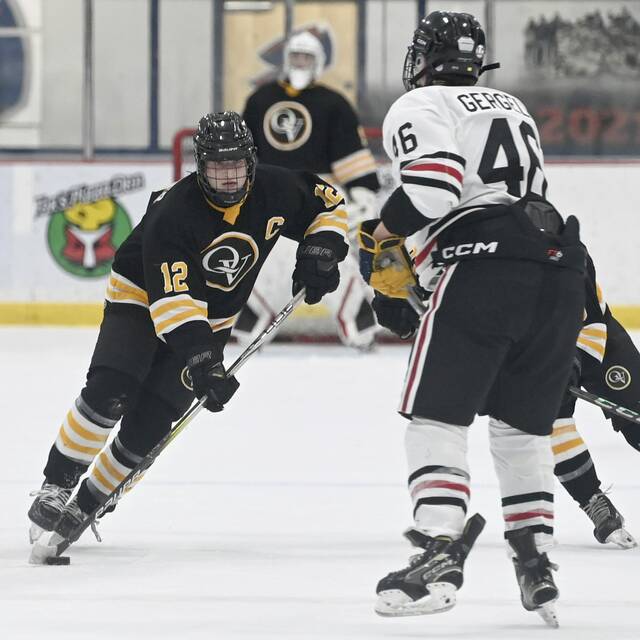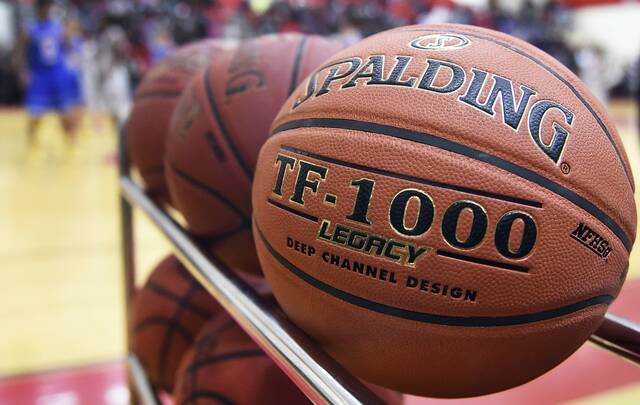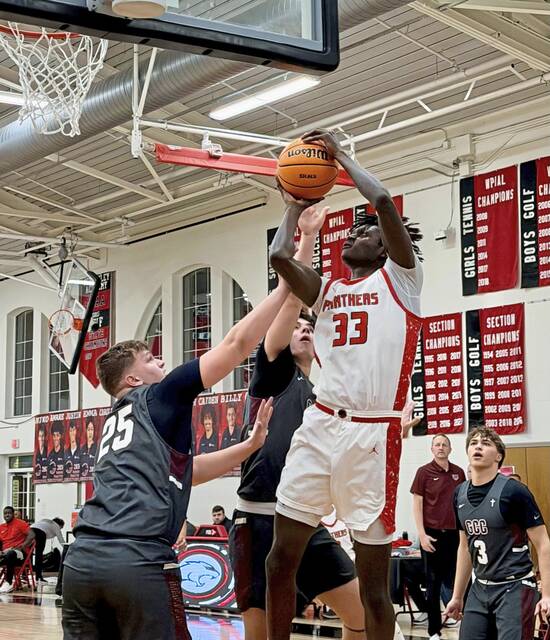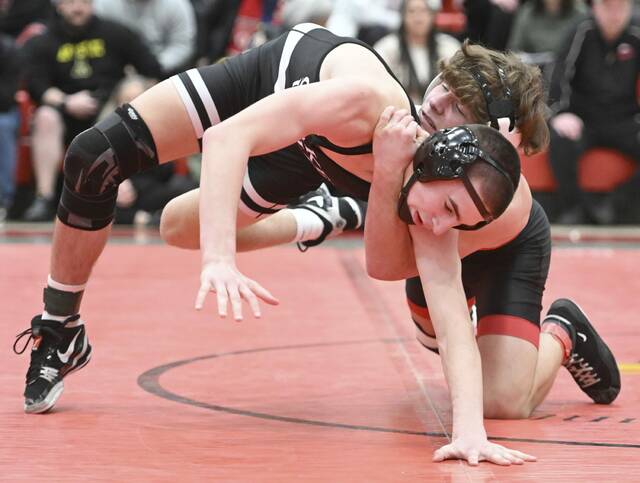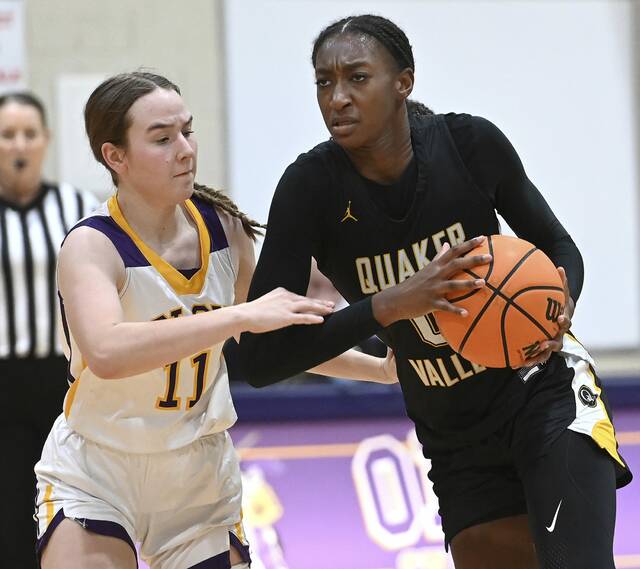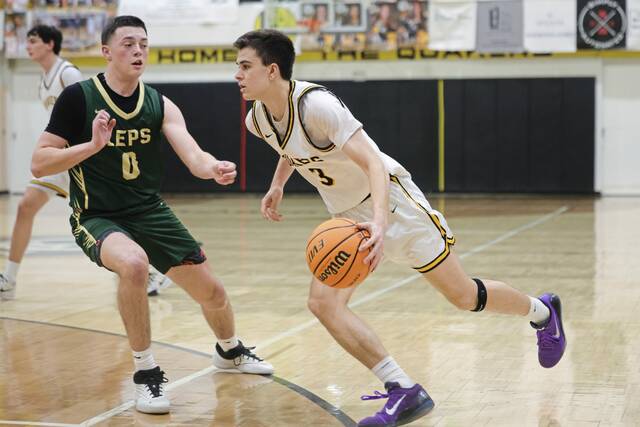Imagine being a teen and getting into a fight in school or on a bus.
Damaging a desk or some other school district property or involved in other mischief.
Going to juvenile court or a local magistrate can result in a criminal record and fines.
Quaker Valley School District is in the fifth year of a program that allows students the opportunity to learn from their mistakes without being entered into the justice system.
Peer jury was introduced by Aaron Vanatta, the district’s chief of police, in the 2016-17 school year.
Students accused of crimes such as misdemeanors, summary offenses and even minor felonies, go before a jury of fellow students instead of a judge.
There have been 85 cases in Quaker Valley as of late March.
Vanatta said only five students have committed second offenses and three failed to comply with the jury’s orders, which resulted in actual charges being filed.
Peer jury is designed to be educational not only for the student in trouble, but for the youths on the other side of the bench.
“This program is good for not only a legal background, but any kind of social sciences, because they get to see and hear things on why people behave the way they do,” Vanatta said. “Some people behave the way they do because of some kind of trauma in their life, some kind of adverse childhood experience. Others behave because of some kind of mental health disability or something like that.”
Offenders can be as young as 10 years old and in middle school. They are usually accompanied by their parents or guardians and have admitted to the infractions.
The most common cases involve criminal mischief, vandalism, harassment, possession of controlled substances, truancy and simple assault.
Peer jury may save them from the courts. However, it does not absolve them from district discipline such as detention and suspensions.
Offenders are still adjudicated by school administration for violations of the district’s code of conduct.
“This has been an incredibly powerful opportunity for us to impact the lives of students in a positive way,” Principal Deb Riccobelli said. “It helps us with keeping students out of the court system.
“To have the ability for students who have made a mistake to go before their peers and be held accountable to their peers and to the school in a way that helps to shape their behaviors and get them on a better path has been incredible productive for us.
”I’ve seen first hand the positive impact that it’s making on our students who, after going through peer jury, have made better choices and are not continuing to engage in the same behaviors.
Vanetta said he learned about peer jury while starting his career in the late 1990s and early 2000s working for Washington County Juvenile Probation.
He developed it in the Keystone Oaks School District prior to coming to Quaker Valley.
There are 22 jurors this year, including 14 seniors, a few juniors and sophomores.
Participating student jurors are screened by Vanatta, Riccobelli and Assistant Principal Abigail Bator.
“We’re looking for students who care deeply about others,” Riccobelli said. “It’s not just about them doing it to put on their resume, but for students who want to make a difference, who want to help their school and their community. It’s a very diverse jury. Diverse with students (in terms of) academics and activities and experiences.”
They also have to be recommended by their teachers. Some on the jury have been through the other end of the process and have turned their lives around.
Those who make the cut are sworn in by District Judge Robert L. Ford.
Jurors are sworn to keep cases confidential, not be intimidating or gossip.
There are no attorneys for either side, and the jury does not find the defendant guilty or innocent.
Instead, the peers come up with ways for the accused to make restitution and be held accountable for his or her actions. It can be in the form of a research paper, essay on respect for rights and/or property of others, evaluations and counseling, no contact with a victim or co-violators, attend tutoring or a host of other methods.
“They have a pretty broad spectrum of what they can do,” Ford said. “It all depends on what they (the offender) did. They seem to have a lot more creative things they can do. … I don’t know if it’s any better or worse (than paying fines and coming to court), but I think it sinks in pretty good. The next step if it doesn’t do any good is over to the court.”
Jury reaction
Seniors Michael Lipton, Sara Ruhl and Ellie Bates are jurors who have each sat through more than 20 cases.
“It’s interesting and different every time,” Bates said. “I’ve been at three different days that we’ve done this year where we’ve seen five to 10 cases each. Every single one is different. The conversation that the jury has with both the student and their parents is different every time and constructive.
“It’s not like some set of rules that they go through and steps that they go through to get some sort of punishment. It’s an actual conversation that we have with them.”
Jurors rotate and even excuse themselves from some cases, such as those that may involve family members or best friends.
This is the second year Sara has participated in peer jury. The school’s school board representative has served as foreman.
She reads the police narrative outlining the charges and offenses, as well as leads discussions on addressing the situations.
“I’ll prompt the individual to talk about what happened, and we usually start off with questions that are more friendly and easier to get into what actually happens so they’re more comfortable with us,” Ruhl said. “I also introduce us to the parents or guardians.
“I think of it an an honor and a great opportunity (being foreman) because this role gives me a new perspective on things going on within the district, and also the community.
”This program has helped me realize so many people have so many different stories that we don’t know about. Through this program, hearing from the student themselves or their parents, you learn things that you never knew and probably wouldn’t know if you weren’t in the program. It’s just eye opening.”
Community service, written apologies and doing extra chores at home have also been resolutions through peer jury.
Lipton, who also is student council president, said having a variety of ways to make amends is important.
“I think it’s bad to just punish people,” he said. “I think they need education on why they’re wrong. Education on how they can do better in the future. I think this program sets that up perfectly.
“I wanted to participate because I wanted to see the inner workings of how (this) worked. Also, I wanted to be a positive impact on my community and be able to impact as much things as I can in Quaker Valley and help as much as I can.”
The soon-to-be-graduates said they hope the program continues and that more school districts adopt it.
Vanatta said other districts have visited Quaker Valley to see how the program works.


